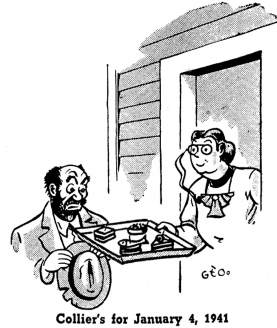 Clever writer and charming socialite, Clare Boothe Luce (1903 – 1987) succinctly summed-up the good and the bad that could be found at the highest levels of social America in the Thirties...
At the tail-end of a very long interview concerning the problems with Hollywood movies, Emily Post (1872 – 1960), America's high-priestess of good manners, was asked just one more question - this one involved the English language and here is Emily Post's 1939 list of what to say and what not to say.
• Don't say 'brainy' - say, 'clever'.
• Don't say 'wealthy', say 'rich'.
• Don't say 'Charmed or pleased to meet you', say 'how do you do'.
• etc, etc, etc.
Emily Post had so many opinions... Although this Vogue article was written long before the need was ever created to discuss "e-mail etiquette" or "the proper application for Velcro in custom tailoring", many of these tribal maxims in Social Washington (both official and non) are still adhered to, especially in so far as White House functions are concerned. This article summarizes in a mere three columns the social conventions of Washington D.C. in 1921 and it covers the rules that the First Lady and the Vice-President's wife were expected to abide by as well as the proper manner of accepting White House invitations.
"The Chief Justice of the Supreme Court is not invited to dine with an Ambassador, or a foreign Minister, or the Secretary of State, because their relative rank has never been established."
The article reads much like any rule book, but it will introduce you to a local deity whom the idolatresses of "The Washington Social Register" have long prostrated before: the Washington Hostess.
Click here to read an article about social Washington during the Depression.  |
Some ninety-three years ago, "Fish" was the name scribbled on those unique cartoon illustrations that could be found throughout VOGUE (both American and British) and VANITY FAIR. The editor of American VOGUE between the years 1914 and 1952, Edna Woolman Chase (1877 - 1957) called this English cartoonist "brilliant" and began running her drawings from her earliest days in that office; her full name was Ann Fish and this article will tell you all we know about her.
"This most cosmopolitan of living black-and-white satirists has never stirred from England in all her days. She has never especially extended herself as a spectator of the London life which she so amusingly depicts. She has never gazed on Fifth Avenue." Americans of the mid-Nineteenth Century who entertained any social ambitions at all were totally at a loss as to how they might find their place in the business world, much less the swank and pomp of polite society, if they were without any understanding as to the manners required to open these doors. Unable to benefit from such T.V. shows as "Dallas" or "Dynasty" and finding that Emily Post was no where in view, they found a reliable ally in a collection of pamphlets briefly published by the firm of Beadle & Adams.
Five months into the "general unpleasantness" going on across the Channel had transformed London into a very different city, and sadly, it was the leisured classes that had to shoulder most of the burden: "London is well worth living in these troubled days if only for its contrasts...The gloom of the streets, the sinister play of the searchlights, the abnormal hour at which the theatres open and and the public houses close, the fact that half the male population is in khaki and the other half would like to be, that Society is wearing Noah's Ark clothes and that to buy a new hat is a crime, that there are no dances, no dinners, no suppers, no premieres, no shooting, no no posing, no frivolity, nor idling, it's rather quickening, you know. But the searchlights have absolutely killed all practical romance." |
MORE ARTICLES >>> PAGE: * 1 * 2 * 3 * |
|
|